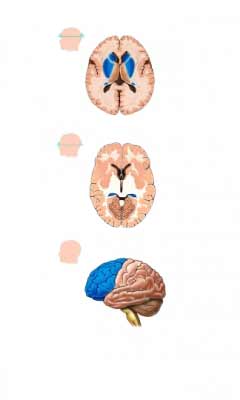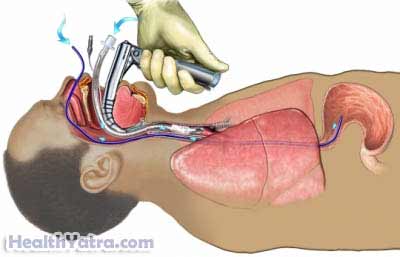Definition
Drowning occurs when normal air exchange in the lungs is prevented when a person’s nose and mouth is under the surface of a liquid or when a person’s face comes in contact liquid.
Causes
Drowning is caused by breathing problems due to liquid such as water. At first, the person will hold his or her breath. Eventually, the person will no longer be able to hold it. The liquid will flow into the lungs. This liquid will not allow the normal gas exchange in the lungs to happen.
Risk Factors
Risk factors that increase your chances of drowning include:
- Use of drugs or alcohol prior to incident
- Horseplay or unsafe diving resulting in trauma
- Being in a body of water and having a prior medical condition, such as seizures, syncopal episodes, cardiac conditions, and hypoglycemia
- Children are most often the victims of drowning. The following factors increase a child’s risk of drowning:
- Not knowing how to swim
- Having an unfenced pool or spa in the home
- Among children less than one year old, the most common risk factor for drowning is being left in a bathtub unattended, even for a few minutes
- The following factors increase your risk of drowning:
- Risk-taking behavior around pools or other bodies of water, especially combined with use of drugs and/or alcohol
- Not knowing how to swim
Symptoms
Symptoms of drowning may include:
- Drowsiness
- Comatose
- Inability to breathe
- Gasping for breath
- Vomiting
- Coughing or wheezing
- Blue skin due to lack of oxygen
In some people, breathing problems may not happen until several hours after a drowning accident.
Diagnosis
Your doctor will diagnose a drowning injury based on the events and the person’s symptoms. A physical exam will be done. Tests may include the following:
Your doctor may need pictures of your body structures. This can be done with:
- X-rays
- Computed tomography and Magnetic Resonance Imaging
Your doctor may need to test your bodily fluids. This can be done with:
- Blood tests
- Oximetry

Treatment
Treatment will depend on how bad the drowning episode damaged the body. Treatment options include:
Cardiopulmonary Resuscitation (CPR)
CPR is done to provide oxygen rich air to the vital organs of the body. This may involve giving rescue breaths or doing chest compressions. In all unconscious people and those who have been diving, the head and neck should be supported in case of injuries to the spine.
Warming Treatments
This is done if the body has become cold due to being in cold water. This may be done slowly to avoid further injury to the body.
Endotracheal Intubation
A narrow tube is placed into the large airways of the lungs to allow mechanical ventilation.

Nasogastric Tube
This is a narrow, flexible, plastic tube that will likely be placed through the nose into the stomach. People with drowning injuries may have swallowed a lot of water.
Prevention
To help reduce chances that that you or someone you know will drown, take the following steps:
- Never leave children alone with any body of water such as a pool, bath tub, or spa. Danger can occur within moments.
- Have your child take swimming lessons. Remember that even a child who knows how to swim is still at risk for drowning and will need constant supervision.
- A fence or barrier should completely enclose your pool or spa. All gates or doors leading from the house to the pool area should have a self-closing, self-latching gate. It should be above the reach of toddlers and young children. You may want to get a pool alarm or rigid pool cover in addition to the fence and gates.
- If you use a lightweight, floating pool cover, be extra alert to the potential for drowning accidents. These covers do not keep people from falling in. No one should ever crawl or walk on them.
- Remove any obstacles to allow a full view of the pool or spa from the house.
- Body parts and hair can be trapped in pool drains. Be sure that the pool has drain covers or a filter system to release the suction.
- Ensure careful supervision of all guests if alcoholic beverages are served at a spa or pool.
- When swimming in open water, choose an area where there is a lifeguard.
- Always wear life vests when boating.
- There is a risk of drowning during the winter time. Warn children and others about the danger of walking or skating on thin ice.
- Do not allow anyone of any age to swim alone. A supervising adult should be within arm’s length of infants and toddlers who are swimming. The adult should know how to swim, be able to rescue someone, and do CPR.
Keywords :
Drowning Definition, Drowning Causes, Drowning Symptoms, Drowning Complications, Drowning Surgery Cost in India, Drowning Treatment Hospital in India, Drowning Treatment in India, Drowning Doctors in India, Drowning Meaning in Hindi, Drowning Meaning in Bengali, Drowning Meaning in Arabic, Drowning Treatment cost in 2024, Drowning Hospital in India, Drowning Treatment Near Me, who drowning, causes of death in drowning, conclusion of drowning, deaths by drowning, drowning statistics, drowning report, describe drowning, introduction for drowning,
